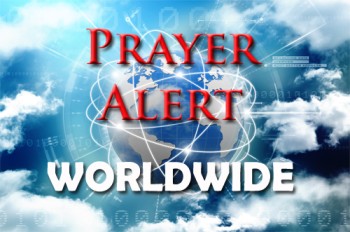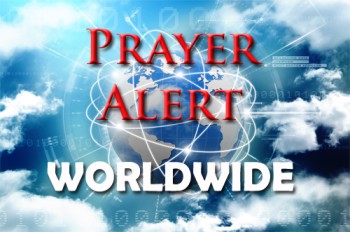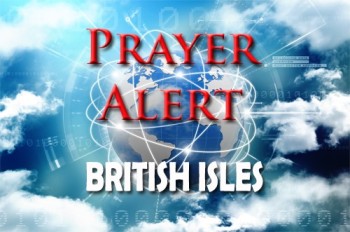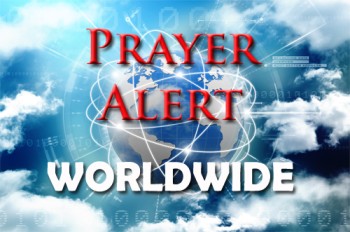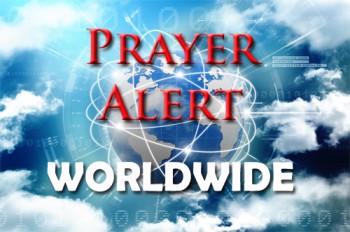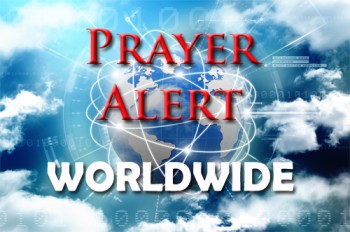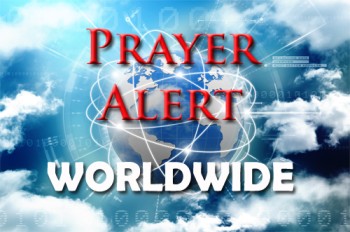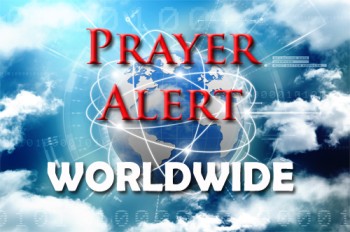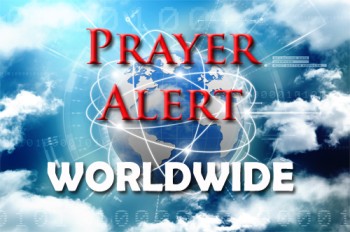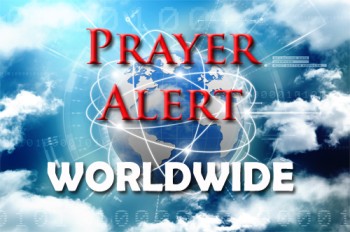Displaying items by tag: Middle East
Syria: Alawite women living with fear after targeted violence and kidnapping
In western Syria, families live with fear after reports of kidnappings targeting women from the Alawite minority. Survivors describe being seized by armed men, beaten, threatened, and sometimes assaulted while held in secret locations for days or weeks. Human rights groups have recorded dozens of cases since the overthrow of Bashar al-Assad (an Alawite) in December 2024, but many families say the authorities have failed to investigate properly. Some victims were questioned about their identity and accused because of their background, leaving deep trauma and stigma. Several families fled their homes, afraid of retaliation if they spoke publicly. Even after release, women struggle with nightmares, broken relationships, and isolation. The crisis highlights how instability can expose vulnerable people to exploitation and revenge.
Middle East: Trump and Netanyahu meet as Iran talks continue
Rising tensions in the Middle East frame a significant meeting between Donald Trump and Benjamin Netanyahu in Washington. Israel is seeking a comprehensive agreement restricting Iran’s nuclear programme, missile development, and support for regional proxy groups, while Iran has signalled willingness to limit nuclear activity in exchange for sanctions relief but rejects broader demands. The USA has increased military presence in the region, warning of possible strikes if negotiations fail, yet leaders on all sides are continuing the dialogue. Iran’s position has been weakened by the huge recent protests, while Israel fears a deal that leaves long-term threats unresolved. At the same time, the Trump administration is pressing Israel and Hamas to implement the next phase of their ceasefire agreement in Gaza, with accusations of violations and little progress towards reconstruction.
Palestine Action protesters ‘not guilty’ ahead of potential re-trial
Six Palestine Action activists have been cleared of aggravated burglary following a break-in at a UK subsidiary of Israeli defence firm Elbit Systems near Bristol, but several still face the prospect of retrial on other serious charges. The raid took place in August 2024, when a group used a vehicle to breach the site’s perimeter and entered the building in protest against what they believe is the company’s involvement in supplying weapons to Israel - claims Elbit Systems strongly denies. While three defendants were acquitted of violent disorder, the jury was unable to reach verdicts on remaining charges for others, including grievous bodily harm against one defendant accused of injuring a police officer. Five activists have been released on bail, with one remanded in custody ahead of a further hearing in February. The trial heard conflicting accounts of events, with prosecutors alleging planned violence using sledgehammers, while the defence insisted the group acted defensively and without intent to harm. Outside the court, supporters gathered to celebrate the partial acquittals. The case has raised wider debate about protest, conscience, public order, and the limits of lawful dissent.
Gaza: humiliation and trauma after Rafah crossing reopens
When the Rafah border crossing was reopened on 2 February, Palestinian women returning to Gaza have described a journey marked by fear, humiliation and deep emotional trauma. Of around fifty people expecting to cross from Egypt on one day, only twelve - three women and nine children - were ultimately allowed through. Several women reported being separated from their children, blindfolded, handcuffed and interrogated for hours by Israeli forces who control entry at the crossing. One woman said she was threatened with detention and pressured psychologically, despite explaining she only wished to return home and see her children. Basic belongings, food and water were confiscated, adding to the exhaustion of an already gruelling journey. Meanwhile, critically ill patients seeking medical treatment abroad were largely denied passage, leaving tens of thousands waiting inside Gaza. There are also reports that Israel is pressurising NGOs working in Gaza: see
Iran / USA: possible scenarios if Trump decides to attack
As Donald Trump warns Iran that ‘time is running out’ for a nuclear deal (see ), and with US forces reportedly preparing for strikes on Iran within days, the consequences are far from clear. Limited ‘surgical’ attacks could hit Revolutionary Guard facilities, missile sites and nuclear infrastructure, but hopes for a rapid transition to democracy look highly optimistic, given past interventions elsewhere. Another scenario is the regime surviving but moderating its behaviour, though Iran’s leaders have historically resisted change. Many observers fear a collapse followed by hard-line military rule, or worse, nationwide chaos and conflict involving ethnic minorities. Iran has vowed retaliation, which could take the form of missile and drone attacks on US bases or warships, or mining the Strait of Hormuz, which is a vital shipping ‘chokepoint’, especially for global oil and LNG. Iran’s Arab neighbours, all US allies, are understandably jittery that Iran could attack them. The most dangerous scenario is escalation into a wider war with no clear end-state and severe regional and economic fallout.
Israel: football pitch for Palestinian children wins a reprieve
A small Palestinian children’s football pitch in Bethlehem has been granted a temporary reprieve after Israel postponed its planned demolition. The Aida Youth Centre pitch, built in 2020 to serve more than two hundred children from the nearby Aida refugee camp, was declared illegal for lacking permits and for its proximity to Israel’s security barrier. A demolition order issued late last year sparked a widespread international campaign, including a petition signed by more than half a million people and appeals from figures within global football. The Israeli military, which still maintains that the pitch poses security concerns, says the postponement is ‘for the time being’. For local families, the issue carries deep emotional weight, symbolising dignity, hope, and normal childhood amid overcrowding and restriction. While the immediate threat has eased, the community fears the order could return once attention fades, and has vowed to keep campaigning.
Syria: US moves 150 IS prisoners, thousands to follow
US forces have begun transferring IS prisoners out of Syria, moving 150 detainees to Iraq under plans that could see up to 7,000 relocated. The move follows growing instability after Kurdish-led Syrian Democratic Forces (SDF) withdrew troops from parts of northeast Syria, raising concerns over the security of prisons and detention camps holding thousands of IS members and affiliates. US officials said recent unrest allowed around 200 low-level fighters to escape one facility, though many were later recaptured. More than 10,000 IS fighters remain imprisoned in Syria, alongside thousands of women and children connected to the group. The transfers are being carried out in coordination with the Iraqi government as part of efforts to prevent a resurgence of IS and maintain regional security. The changes come amid a wider political shift, with Syria’s new government seeking to reassert control after the fall of Bashar al-Assad. A ceasefire has been agreed with the SDF, which has been urged to integrate into the Syrian state, marking a significant transition in security arrangements.
Iran: Trump steps back from threats of military action over protests
Donald Trump has stepped back, at least temporarily, from threats of US military action against Iran, saying he has been assured that the killing of protesters has stopped and that no executions are planned. He said these assurances came from ‘very important sources on the other side’, though the claims have not been independently verified. Despite reports that over 3,400 have been killed during the recent anti-government protests and fears of imminent executions, Trump said he was unconvinced that military action would bring decisive change. He had been strenuously lobbied by leaders in the Middle East to not to go ahead with strikes which would be certain to lead to an Iranian counterstrike on US bases. Iranian officials have publicly denied plans for executions, and at least one expected execution has been postponed. While rhetoric has softened slightly, deep divisions over human rights abuses and Iran’s nuclear ambitions persist, leaving the situation fragile and unresolved.
Syria: government tells Kurdish forces to leave Aleppo after deadly clashes
Syria’s army has moved reinforcements to areas east of Aleppo after ordering Kurdish forces to withdraw, following deadly clashes which have killed over 100 and displaced as many as 150,000. The Islamist-led government is seeking to reassert control nationwide, but efforts to integrate the Kurds’ autonomous administration and forces into the state have stalled, despite an agreement reached earlier this year. Kurdish-led forces deny building up troops and accuse the government of launching fresh attacks, while Damascus insists it is responding to provocation. Limited skirmishes and artillery fire have been reported, raising fears of a wider confrontation. In Qamishli, the main Kurdish city in the country's northeast, thousands of people demonstrated, accusing the government of breaking its promises and preparing a broader assault. With mistrust deepening, the situation remains volatile, threatening further suffering for civilians already exhausted by years of conflict. Christians in the region are asking for prayer: see
Gaza: infant dies of hypothermia in terrible weather
A humanitarian tragedy is unfolding in Gaza as a Palestinian infant has died from hypothermia amid severe winter conditions and ongoing restrictions on aid. Local health officials reported that two-week-old Mohammed Khalil Abu al-Khair succumbed to extreme cold after families were left without adequate shelter, heating, clothing, or fuel. Israel’s prolonged military campaign has destroyed much of Gaza’s infrastructure, forcing hundreds of thousands to live in tents or damaged buildings unable to withstand storms and freezing temperatures. Recent severe weather has flooded shelters, collapsed structures, and caused further deaths. Humanitarian agencies warn that Israeli restrictions on aid deliveries, including limits placed on UNRWA, are preventing lifesaving supplies from reaching civilians at scale. The child’s death underscores how the denial of basic necessities has turned winter itself into a lethal threat, particularly for children and other vulnerable civilians.
